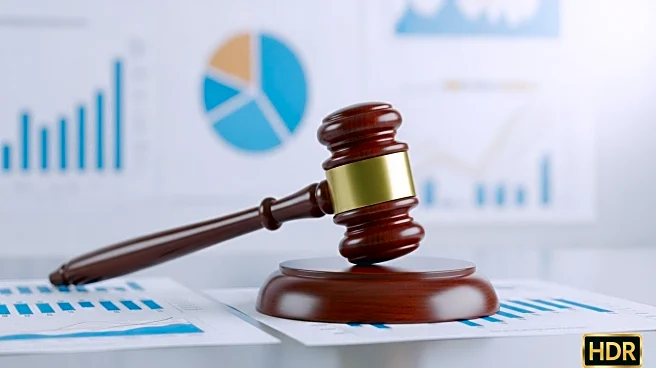What's Happening?
President Trump is attempting to remove Federal Reserve Governor Lisa Cook, a move that could have significant economic implications. This action is part of Trump's broader strategy to pressure the Federal Reserve to lower interest rates. Historical examples from countries like Turkey and Argentina suggest that removing central bank officials can lead to higher interest rates and inflation. In Turkey, President Erdogan's dismissal of the central bank chief led to a currency devaluation and inflation spike. Similarly, Argentina faced inflation challenges when President Kirchner attempted to fire the central bank president. Trump's decision comes amid signs of a slowing U.S. economy, with tariffs contributing to inflation and a stagnant job market. Federal Reserve Chair Jerome Powell has indicated potential interest rate cuts to stimulate the economy. Trump's move has sparked concerns about the Fed's independence, which is crucial for managing inflation expectations and maintaining economic stability.
Why It's Important?
The potential removal of Lisa Cook from the Federal Reserve could have far-reaching consequences for the U.S. economy. The independence of the Federal Reserve is vital for maintaining trust in its ability to manage inflation and the job market. If the Fed's independence is compromised, it could lead to higher interest rates, making it more expensive for consumers to buy homes and for businesses to invest. This could slow down economic growth and negatively impact the average American. The situation highlights the delicate balance between political influence and economic policy, with Trump's actions potentially undermining the credibility of the Federal Reserve. Investors may demand higher compensation for lending to the U.S. government, further increasing interest rates and affecting economic stability.
What's Next?
The legal battle over Lisa Cook's removal is likely to unfold, as her lawyer plans to file a lawsuit challenging Trump's decision. The outcome of this legal challenge could set a precedent for the independence of the Federal Reserve and its governors. Meanwhile, Trump is reportedly considering candidates to replace Federal Reserve Chair Jerome Powell, whose term expires in May. The selection of new candidates could signal Trump's broader economic philosophy and approach to interest rates. The markets have remained relatively calm due to the robustness of the U.S. financial system, but there is potential for increased investor distress if the situation escalates.
Beyond the Headlines
The attempt to remove a Federal Reserve governor raises questions about the ethical and legal dimensions of political interference in economic policy. The independence of central banks is a cornerstone of economic stability, and any perceived political influence could undermine confidence in the U.S. financial system. This development also reflects broader global trends where political leaders have sought to exert control over central banks, often leading to economic instability. The long-term implications could include shifts in how central banks operate and their role in safeguarding economic health.









